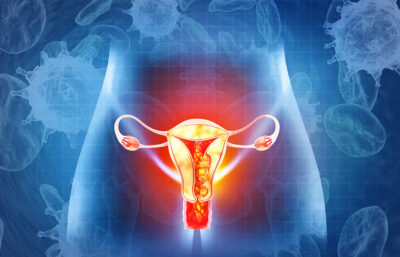The endometrial thickness, or the lining of the uterus, plays a significant role in female reproductive health. It fluctuates throughout the menstrual cycle and is critical for successful implantation during pregnancy. Several factors affect endometrial thickness, and understanding these can help in diagnosing various reproductive and health issues, such as infertility, menstrual irregularities, and even uterine conditions like endometrial cancer. Below are the main factors influencing endometrial thickness and their implications:
Hormonal Balance
The menstrual cycle is driven by the hormonal interplay of estrogen and progesterone. Estrogen stimulates the endometrium to thicken in preparation for a potential pregnancy, while progesterone helps stabilize the lining. An imbalance in these hormones, such as insufficient estrogen or excess progesterone, can either prevent the endometrial lining from thickening or cause it to become too thick. Women with low estrogen levels may experience thin endometrial linings, which can lead to infertility or difficulties in maintaining a pregnancy. Conversely, excess estrogen without sufficient progesterone can cause abnormal thickening, increasing the risk of conditions like endometrial hyperplasia or cancer.
Age and Menopause
Endometrial thickness naturally changes with age. In reproductive years, the endometrial lining thickens and sheds with each cycle. As a woman approaches menopause, estrogen levels drop, leading to a thinner endometrial lining. Post-menopausal women typically have an endometrial thickness of less than 5 mm. A thicker lining in post-menopausal women may indicate abnormal conditions, including polyps, hyperplasia, or even malignancy. Regular monitoring of endometrial thickness in post-menopausal women is often recommended to catch these conditions early.
Polycystic Ovary Syndrome (PCOS)
PCOS is a hormonal disorder that affects many women of reproductive age. It can cause irregular menstrual cycles and an imbalance in hormone levels, particularly elevated levels of androgens. This imbalance can prevent regular ovulation, leading to prolonged exposure of the endometrial lining to estrogen without the balancing effect of progesterone. Women with PCOS may experience either thin or excessively thick endometrial linings, depending on the severity of their condition. Monitoring and managing hormonal imbalances in PCOS are key to preventing long-term complications related to endometrial thickness.
Obesity
Excess body fat can lead to an overproduction of estrogen, especially in post-menopausal women. Since fat tissue can convert androgens into estrogen, obese women are more likely to have elevated estrogen levels, which can stimulate the endometrium to thicken abnormally. This increases the risk of endometrial hyperplasia and endometrial cancer. Weight management and regular health check-ups are essential for women who are overweight or obese to avoid complications related to their endometrial health.
Medications and Fertility Treatments
Certain medications can affect endometrial thickness. For example, fertility treatments often involve hormonal therapies that stimulate the ovaries to produce eggs and encourage the endometrium to thicken, creating a favorable environment for implantation. However, some women undergoing fertility treatments may still have thin endometrial linings despite hormonal stimulation, complicating the success of the treatment. Medications like tamoxifen, often used in breast cancer treatment, can also lead to an abnormally thickened endometrial lining due to its estrogenic effects on the uterus.
Health Conditions and Diseases
Underlying health conditions such as diabetes, hypertension, and autoimmune diseases can indirectly influence endometrial thickness by affecting overall hormonal balance or the blood flow to the uterus. Inflammatory conditions like endometriosis can also affect how the endometrial lining builds up and sheds, contributing to abnormal thickness in some cases.
Conclusion
Endometrial thickness is influenced by a range of factors, including hormonal levels, age, lifestyle, and underlying health conditions. Abnormalities in the thickness of the endometrium can signal various reproductive and health issues, from infertility to more serious conditions like endometrial hyperplasia or cancer. Understanding and monitoring these factors can be crucial in maintaining reproductive health and detecting potential problems early.
